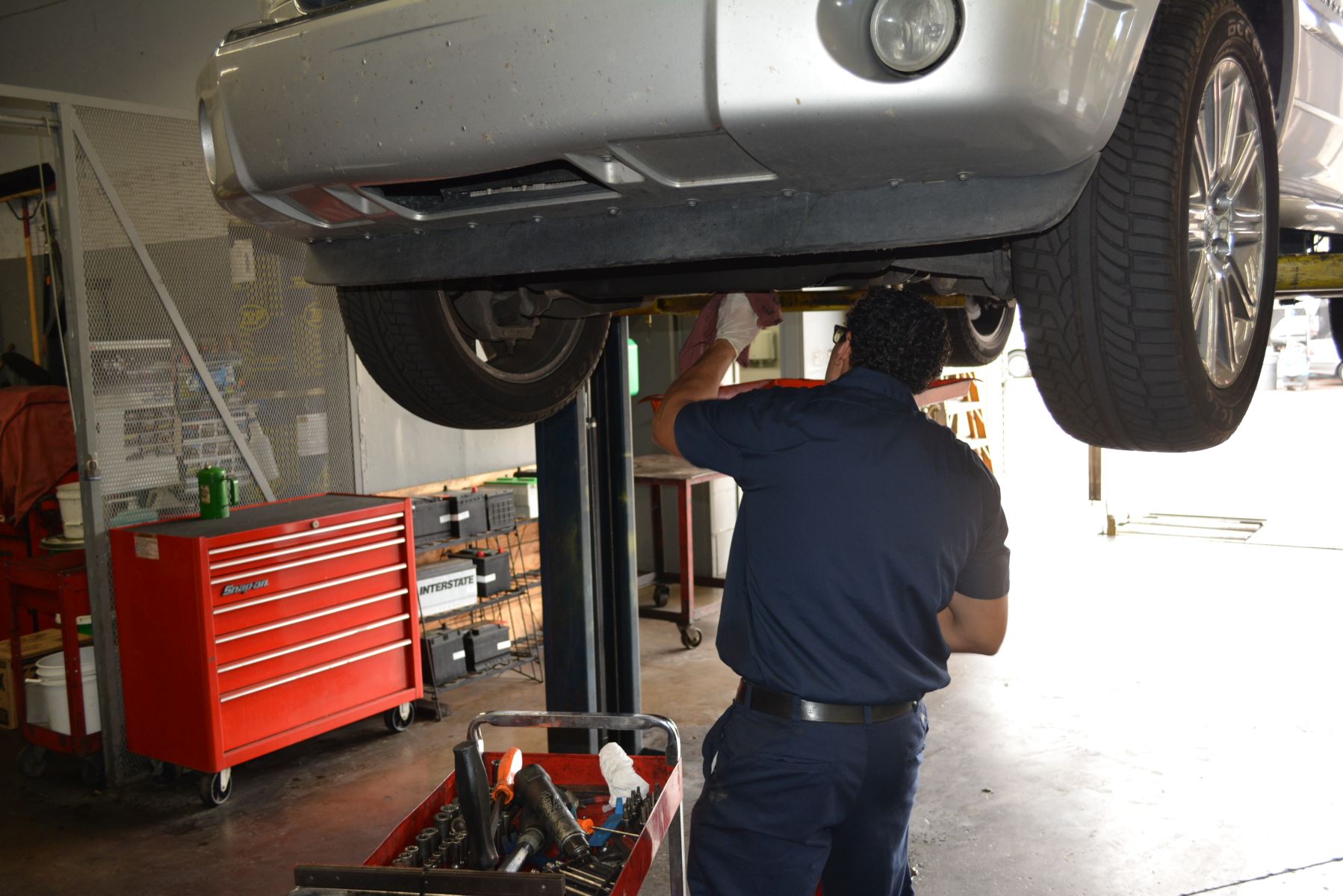Posted on 8/2/2016
_(1).jpg)
Car inspections are an absolutely crucial aspect of car maintenance and ownership. Like any complex machine, cars need to be inspected, maintained, and repaired on a regular basis to ensure that everything is in working order and that there are no major issues that would cause a safety or performance problem. Unfortunately, most people don't know how to perform a full car inspection on their own. Which is why it's important to schedule detailed vehicle inspections regularly. Read on to learn more about the all-important car inspection process: What a Regular, Complete Car Inspection Is A regular, complete car inspection consists of a thorough, systematic, point-to-point check of major aspects of the car's structure and operations. These are performed on a regular schedule and are conducted the same way every time, regardless of previous repairs (or whether a point was "ok'd" the last time it was checked). A car inspection ... read more
Posted on 1/19/2016

Fleet maintenance is one of the most important aspects of operating a business. A company’s fleet of working vehicles should always be in working order and ready to go when needed. If even just one vehicle is not working properly, it could cause a whole host of problems. This week, we’ll be focusing on some basic steps you can take to ensure that your business’ fleet is in good shape. Even if you don’t operate a business, you should consider the cars you own for personal use as your “fleet”, and you can still apply the tips below to your own cars. Read on to learn what you can do to maintain your vehicles and prevent issues from arising unexpectedly. Why Fleet Maintenance is Important An improperly maintained fleet can cause a whole host of issues for your business. These include: Delayed deliveries or pick-ups Problems with transporting employees Decreased fuel efficiency (this can be costly!) Increased risk of an accident while dri ... read more
Posted on 9/8/2015

Oil is what keeps everything running smoothly under your car's hood. Over time, that oil gets a bit dirty, thick--not something you want coursing through your expensive pieces of automotive machinery. While getting an oil change does sound like a chore, putting off an oil change can leave you with an even bigger headache and unfortunately, a much lighter wallet. Here are three reasons you should never put off an oil change. Small Problems Could Become Big Problems The problems that can arise from not changing your oil regularly can sometimes be very severe. Old, dirty oil can contaminate your entire engine and reduce the performance of your car. When all of that nice, fresh oil that was keeping everything under the hood lubricated isn’t there anymore, engine parts start deteriorating and not operating as well as they should. This leads to two big car problems: A marked decrease in your car’s all-around performance. Great increase in the chances of a full engine brea ... read more
Posted on 5/8/2012
People near San Diego often ask Convoy Auto Repair how often they should have a particular service done. It's a great thing to ask. You can look at your owner's manual, or have your San Diego service advisor at Convoy Auto Repair look up your vehicle in a service database. What you find is often a surprise to people - there are actually two service schedules.One is the regular schedule and the other is the severe service schedule. Service intervals are shorter on the severe service schedule. When asked, most folks in San Diego will say that their driving is normal and that the 'regular' schedule probably applies to them. 'Severe service' sounds pretty extreme - 'I don't drive like that'.Well, here is what the manufacturers say constitutes severe driving conditions; you can draw your own conclusions. If that's severe driving, what constitutes regular driving? Well, it would look something like this: I live somewhere with moderate temperatures all year round - I'm thin ... read more
Posted on 7/13/2011
Nowadays, everyone in San Diego is paying more at the gas pump. For some families in the area, it adds up to several hundred dollars every month. That's got to come out of the budget somewhere. Throughout North America, people are putting off buying a new car. They plan on keeping their old vehicle for a year or two longer than before. Even now, 2/3 of the personal vehicles on our local roads have over 75,000 miles on them. The average age of vehicles is over nine years. And most people in San Diego can't afford to be stranded or inconvenienced by a break down. So following a regular maintenance schedule, like our personal diet and exercise plans, is actually critical to preserving your investment. Knowing what to do for a higher-mileage vehicle can be challenging because many owners' manuals don't publish service intervals after 60,000 miles. It just means that you need to be better at keeping records and planning your preventive maintenance. You can start by figuring that services w ... read more
Posted on 5/31/2011
Let's talk about deciphering the auto service menu board. San Diego service centers like Convoy Auto Repair have a board that lists the routine services they provide. But some people don't know what these services really are unless they ask. Let's go down a typical list, in alphabetical order, starting with air conditioning service. First remember that all of these services are recommended by vehicle manufacturers. They set how often or at how many miles the service should be done. Air conditioning service involves purging the old refrigerant and capturing it for proper disposal. Then fresh refrigerant is installed. The fresh refrigerant will lubricate the system and will also help it cool better. Alignment. Service centers like Convoy Auto Repair make sure all four wheels are lined up and track with each other. This reduces tire and suspension wear and improves safety and ... read more
Posted on 4/29/2011
Most people in the area are aware that automotive manufacturers have recommended service intervals. Following recommended service intervals is very important. The engineers that design our vehicles have tested the various systems and components to meet durability and safety standards. Some of these standards are self-imposed and others, like those for emissions components, are government mandated. The maintenance schedules are designed to achieve the standards. Think of the benefits of following recommended intervals as falling into three general categories: Protection, Efficiency and Safety.Protection. Let's start with motor oil. First of all, the engineers recommend a particular weight and type of motor oil for your sedan. All of their oil change recommendations assume using the proper motor oil. Motor oil contains detergents and other additives that clean the engine and provide corrosion resistance. Over time, the additives are depleted. The oil a ... read more
Posted on 12/16/2010
Everyone in San Diego knows we're supposed to go to the dentist twice a year. We get our teeth cleaned and have a thorough dental inspection. Once a year, we get x-rays to look for problems that can’t be seen with the naked eye. When the dentist is done, he tells us what he’s found – “Everything’s fine, see you in six months.” Or “You’ve got a small cavity starting, let’s schedule an appointment to take care of it.” By the time you leave, you have a plan for addressing any necessary repairs. This system works so much better than waiting for a painful problem before going into the dentist. Small problems are fixed before they turn into big problems. And you avoid those huge bills. If we buy into this way of handling our dental care, why do we resist so much when facing the same system for our car care? Following the manufacturer’s recommended intervals can be confusing. First there are recommendations for so many things: oil changes, transmission, coolant, air conditioning, power steer ... read more